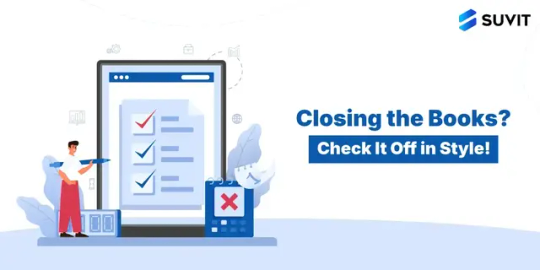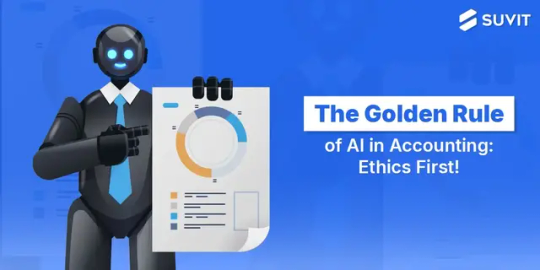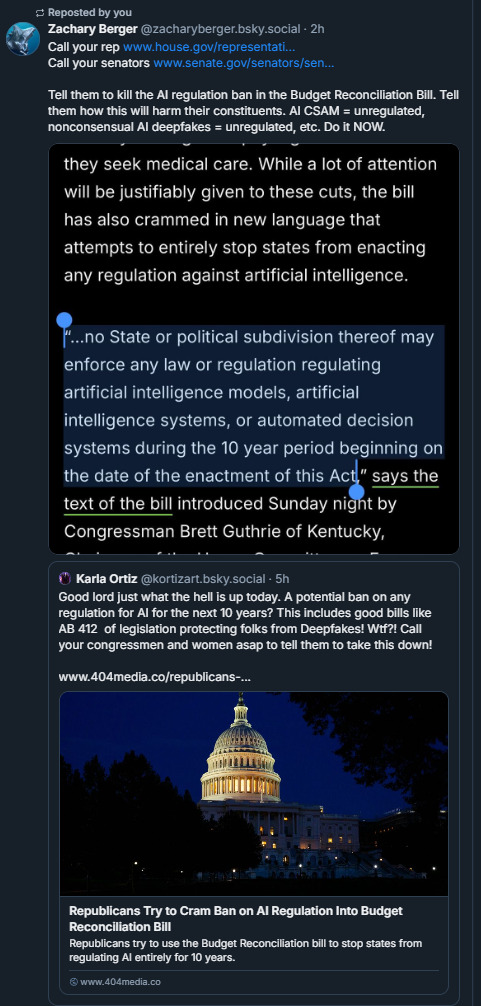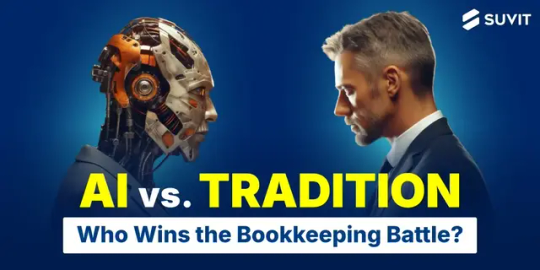#AI in Accounting
Explore tagged Tumblr posts
Text
Every Month-End Close Checklist for Finance & Accounting Teams

Is "month-end close" a daunting term for your finance team? You're not alone!
Many accountants find it stressful, but with a solid plan, it doesn't have to be. Here's a concise checklist to ensure a smooth and accurate month-end close:
1. Pre-Close Preparation 🗂️
Gather Documentation: Collect all invoices, receipts, and expense reports 3-5 days before closing.
Review Transactions: Identify and rectify any missing or duplicate entries 3 days prior.
Team Communication: Ensure all departments submit their inputs 2 days before closing.
Pro Tip: Utilize shared folders or accounting software to centralize documents and enhance visibility.
2. Reconciliation of Accounts 🔄
Bank Reconciliation: Align bank statements with recorded transactions; promptly address discrepancies.
Accounts Payable & Receivable: Confirm all outstanding invoices are accounted for and follow up on overdue receivables.
Fixed Assets: Update asset registers and calculate monthly depreciation.
Watch Out: Small discrepancies can escalate; timely follow-ups are crucial for cash flow.
3. Review and Adjust Entries ✏️
Accruals and Prepayments: Record and allocate revenues and expenses to the correct periods.
Currency Adjustments: Adjust for foreign exchange rate changes if dealing with multiple currencies.
Quick Tip: Accounting automation tools can significantly reduce manual errors.
4. Generate and Analyze Reports 📈
Prepare Reports: Generate trial balances, profit & loss statements, balance sheets, and cash flow reports.
Analyze: Compare actuals against forecasts to identify variances and inform strategic decisions.
Additional Tip: Use visualization tools like graphs to simplify data interpretation for stakeholders.
5. Documentation and Finalization 📝
Maintain Records: Keep detailed work papers for adjustments.
Secure Approvals: Obtain necessary sign-offs before finalizing.
Essential: Proper documentation ensures transparency and audit readiness.
6. Post-Close Activities 📅
Share Reports: Distribute finalized reports to key stakeholders.
Review Process: Conduct a debrief to identify areas for improvement.
Archive Records: Securely store all relevant documents for future reference.
Continuous Improvement: Use team feedback to refine the process for subsequent months.
By following this checklist, you can transform the month-end close from a stressful task into a streamlined process.
Consistency and preparation are your best allies. For a more detailed guide, read the full article here: Month-End Close Checklist.
0 notes
Text

#threads#threads app#threads account#threads an instagram app#celebrity news#robin williams#zelda williams#ai#ai generated#aiartisnotart#ai is a plague#ai issues#ai is not art#ai is scary#ai is dangerous#ai is theft#ai is stupid#support human artists#disturbing#terrifying#unsettling#actors strike#sag afra strike#workers#workers rights#workers strike#support unions#voice actors#actors#actor
49K notes
·
View notes
Text
Generative AI in accounting: Top applications for businesses
Let’s talk about some of the core use cases of Generative AI in accounting and how it's making accounting teams to be more productive than ever.
0 notes
Text
Navigating the Maze: Challenges and Opportunities of AI in Accounting

Introduction:
In the digital age, the integration of artificial intelligence (AI) into different industries has revolutionized operations, streamlining forms, and enhancing efficiency. The field of accounting, customarily dependent on manual data entry and investigation, is no exception. AI offers a myriad of openings for accountants, promising quicker data preparing, improved accuracy, and improved decision-making capabilities. In any case, as with any innovative advancement, the utilization of AI in accounting comes with its claim set of challenges. In this article, we dive into the complexities and hurdles faced by accounting as they explore the domain of AI.
Challenges of AI in accounting
Data Quality and Integration:
One of the primary challenges encountered in AI implementation inside accounting is guaranteeing the quality and compatibility of information. AI calculations rely heavily on information inputs to produce meaningful insights. However, dissimilar data sources, inconsistent designs, and data silos can impede the adequacy of AI frameworks. Joining different data streams from diverse sources, such as financial records, transactional data, and regulatory filings, postures a vital challenge for accountants.
Moreover, maintaining data judgment and security is paramount, especially considering the delicate nature of financial data. Ensuring compliance with information security regulations though leveraging AI tools requires meticulous attention to detail and robust cybersecurity measures.
Complexity of Regulatory Compliance:
Accounting practices are subject to a heap of regulations and standards forced by governing bodies such as the Budgetary Accounting Standards Board (FASB) and the Worldwide Financial Detailing Standards (IFRS). These controls coordinate how financial information is recorded, reported, and disclosed, ensuring transparency and accountability.
Coordination AI into accounting processes adds another layer of complexity to administrative compliance. AI algorithms must be prepared to adhere to these standards, requiring intensive understanding and interpretation of regulatory systems. Guaranteeing that AI-driven insights adjust with administrative requirements requires continuous observing and approval by qualified professionals.
Ethical and Bias Concerns:
As AI algorithms depend on historical data to create predictions and suggestions, there is a risk of perpetuating biases present within the data. In the context of accounting, biased calculations could lead to wrong financial estimates, skewed risk evaluations, and unfair treatment of stakeholders.
Moral considerations too arise concerning the use of AI in sensitive financial decision-making forms. Accountants must grapple with questions of transparency, responsibility, and decency when deploying AI instruments. Mitigating bias in AI calculations requires proactive measures, including diverse dataset curation, algorithmic transparency, and progressing ethical review forms.
Skill Gap and Training Needs:
The integration of AI technologies requires a shift in skill sets and competencies within the accounting calling. While AI promises to automate routine assignments and augment decision-making forms, it also requires accountants to create capability in data analysis, machine learning, and programming languages.
Closing the skill gap requires targeted training programs and proficient development activities. Accountants must acquire not only technical skills but also basic abilities to interpret AI-generated insights and make educated choices. Fostering a culture of ceaseless learning and adjustment is essential to harnessing the full potential of AI in accounting.
Cost of Implementation and ROI:
Implementing AI solutions in accounting entails significant upfront costs, including investment in hardware, software, and foundation upgrades. In addition, customizing AI algorithms to suit the special needs of accounting firms adds to the financial burden.
Calculating the return on investment (ROI) for AI implementation postures a challenge, as the benefits may not be immediately tangible or quantifiable. While AI promises long-term proficiency picks up and cost savings, measuring its impact on efficiency and productivity requires careful analysis and benchmarking against traditional accounting practices.
Conclusion:
In spite of the Challenges with AI in accounting and complexities related with AI implementation in accounting, the benefits far outweigh the obstacles. By addressing issues related to information quality, regulatory compliance, moral concerns, skill development, and cost considerations, bookkeepers can harness the transformative power of AI to revolutionize their profession.
Embracing AI innovations offers the opportunity to enhance decision-making, improve operational proficiency, and open new insights from endless troves of financial data. In any case, success in integrating AI into accounting practices requires a vital approach, progressing collaboration between human specialists and AI systems, and a commitment to moral and transparent use of technology. As the digital scene continues to advance, accountants must adjust and innovate to thrive in the age of AI.
FAQS
Q1: What regulatory compliance challenges arise in the context of AI in accounting?
Accounting practices are subject to various regulations and guidelines, and integrating AI adds complexity to compliance endeavors. Accountants must guarantee that AI-driven insights adjust with regulatory frameworks such as FASB and IFRS, necessitating ceaseless monitoring and validation.
Q2: How do ethical and inclination concerns show in AI implementation in accounting?
AI algorithms can sustain biases present in historical information, leading to inaccurate financial forecasts and skewed chance evaluations. Ensuring fairness, transparency, and responsibility in AI-driven decision-making forms requires proactive measures to mitigate bias and uphold moral standards.
Q3: What steps can be taken to address the skill hole in AI adoption for accounting?
Closing the ability gap requires investment in training programs and professional development activities. Accountants need to acquire technical skills in data investigation and machine learning whereas fostering basic thinking abilities to interpret AI-generated insights effectively.
0 notes
Text
So, anyway, I say as though we are mid-conversation, and you're not just being invited into this conversation mid-thought. One of my editors phoned me today to check in with a file I'd sent over. (<3)
The conversation can be surmised as, "This feels like something you would write, but it's juuuust off enough I'm phoning to make sure this is an intentional stylistic choice you have made. Also, are you concussed/have you been taken over by the Borg because ummm."
They explained that certain sentences were very fractured and abrupt, which is not my style at all, and I was like, huh, weird... And then we went through some examples, and you know that meme going around, the "he would not fucking say that" meme?
Yeah. That's what I experienced except with myself because I would not fucking say that. Why would I break up a sentence like that? Why would I make them so short? It reads like bullet points. Wtf.
Anyway. Turns out Grammarly and Pro-Writing-Aid were having an AI war in my manuscript files, and the "suggestions" are no longer just suggestions because the AI was ignoring my "decline" every time it made a silly suggestion. (This may have been a conflict between the different software. I don't know.)
It is, to put it bluntly, a total butchery of my style and writing voice. My editor is doing surgery, removing all the unnecessary full stops and stitching my sentences back together to give them back their flow. Meanwhile, I'm over here feeling like Don Corleone, gesturing at my manuscript like:

ID: a gif of Don Corleone from the Godfather emoting despair as he says, "Look how they massacred my boy."
Fearing that it wasn't just this one manuscript, I've spent the whole night going through everything I've worked on recently, and yep. Yeeeep. Any file where I've not had the editing software turned off is a shit show. It's fine; it's all salvageable if annoying to deal with. But the reason I come to you now, on the day of my daughter's wedding, is to share this absolute gem of a fuck up with you all.
This is a sentence from a Batman fic I've been tinkering with to keep the brain weasels happy. This is what it is supposed to read as:
"It was quite the feat, considering Gotham was mostly made up of smog and tear gas."
This is what the AI changed it to:
"It was quite the feat. Considering Gotham was mostly made up. Of tear gas. And Smaug."
Absolute non-sensical sentence structure aside, SMAUG. FUCKING SMAUG. What was the AI doing? Apart from trying to write a Batman x Hobbit crossover??? Is this what happens when you force Grammarly to ignore the words "Batman Muppet threesome?"
Did I make it sentient??? Is it finally rebelling? Was Brucie Wayne being Miss Piggy and Kermit's side piece too much???? What have I wrought?
Anyway. Double-check your work. The grammar software is getting sillier every day.
#autocorrect writes the plot#I uninstalled both from my work account#the enshittification of this type of software through the integration of AI has made them untenable to use#not even for the lulz
25K notes
·
View notes
Text
AI Ethics in Accounting: Best Practices for Data Privacy and Compliance

Artificial Intelligence (AI) uplifts accounting by automating tasks and offering deeper financial insights.
However, this advancement brings ethical challenges, especially concerning data privacy and compliance.
Why is this important?
Client Trust: Clients rely on accountants to safeguard their sensitive financial information. Any breach can erode this trust.
Legal Compliance: Following data protection laws is important to avoid penalties and maintain professional integrity.
Best Practices for Ethical AI in Accounting:
Transparency: Ensure AI decision-making processes are understandable to clients and stakeholders.
Data Security: Implement robust encryption and regular security audits to protect sensitive information.
Bias Mitigation: Use diverse datasets and continuous testing to prevent discriminatory outcomes.
Accountability: Maintain detailed logs and assign clear responsibilities for AI operations.
Regulatory Compliance: Stay updated with local and international data regulations to ensure adherence.
By embracing these practices, accountants can leverage AI responsibly, maintaining client trust and upholding ethical standards.
For a deeper dive into AI ethics in accounting, read more here!
0 notes
Text
Hey folks I'm invoking my namesake here. It's Vital to be Angry.
The head of the copyright office was fired days ago, and the powers that be are trying to make sure that individual states cannot self regulate anything regarding AI. I am an Artist, I work hard and respect others who engage in this skill set. I assume you do too if you are even seeing this.
If you are in the states. Call your reps. Call your Senators.
Find any Representative.
Leave voice messages, speak to someone in person if you can get a hold of them.
For some more information here.

I keep my page clear of many things because I do not want to spam people thus encouraging them to ignore me as sheer background noise with all the problems we have in this world. Know that I am tired, I am justifiably upset over many other issues, I know I am not alone in that I'm sure most of you feel and know the same.
I have made these calls myself. Be direct. Be forward. Be orderly. Be Punctual. Do what you can.
2K notes
·
View notes
Note
one 100 word email written with ai costs roughly one bottle of water to produce. the discussion of whether or not using ai for work is lazy becomes a non issue when you understand there is no ethical way to use it regardless of your intentions or your personal capabilities for the task at hand
with all due respect, this isnt true. *training* generative ai takes a ton of power, but actually using it takes about as much energy as a google search (with image generation being slightly more expensive). we can talk about resource costs when averaged over the amount of work that any model does, but its unhelpful to put a smokescreen over that fact. when you approach it like an issue of scale (i.e. "training ai is bad for the environment, we should think better about where we deploy it/boycott it/otherwise organize abt this) it has power as a movement. but otherwise it becomes a personal choice, moralizing "you personally are harming the environment by using chatgpt" which is not really effective messaging. and that in turn drives the sort of "you are stupid/evil for using ai" rhetoric that i hate. my point is not whether or not using ai is immoral (i mean, i dont think it is, but beyond that). its that the most common arguments against it from ostensible progressives end up just being reactionary

i like this quote a little more- its perfectly fine to have reservations about the current state of gen ai, but its not just going to go away.
#i also generally agree with the genie in the bottle metaphor. like ai is here#ai HAS been here but now it is a llm gen ai and more accessible to the average user#we should respond to that rather than trying to. what. stop development of generative ai? forever?#im also not sure that the ai industry is particularly worse for the environment than other resource intense industries#like the paper industry makes up about 2% of the industrial sectors power consumption#which is about 40% of global totals (making it about 1% of world total energy consumption)#current ai energy consumption estimates itll be at .5% of total energy consumption by 2027#every data center in the world meaning also everything that the internet runs on accounts for about 2% of total energy consumption#again you can say ai is a unnecessary use of resources but you cannot say it is uniquely more destructive
1K notes
·
View notes
Text
"i just don't think i can bring a child into this world" said person in a developed country whose child would have a greater life expectancy and more resources than 99% of humans throughout history
#kids#if you dont want kids thats fine but this argument really doesnt make sense and yes im taking climate change and AI into account#top
1K notes
·
View notes
Text
dead internet? skill issue. follow human people.
#the internet isn't dead you're just stuck on instagram or tiktok watching shit garbage poopoo crap#there's SOOOO much cool stuff being made every day and you can see it too if you obsessively block ai and clickbait accounts!#and follow artists!#FOLLOW ARTISTS#grace your face
269 notes
·
View notes
Text

275 notes
·
View notes
Text

🔌
#yugioh vrains#ygo vrains#yusaku fujiki#how do i tag ai’s name without it seeming like the other one FAWWWK#aiyusa#my art#yeah guess who forgot they had a tumblr account again
184 notes
·
View notes
Text
AI vs Traditional Bookkeeping: Debunking the Myths

Bookkeeping is important for businesses, but with the rise of AI in accounting, there’s a lot of confusion. 🤔
Let’s break down some common myths about AI and traditional bookkeeping:
Myth #1: AI is Too Expensive
AI tools are more affordable than you think! Many small and medium-sized businesses use them to streamline their finances without breaking the bank.
Myth #2: AI Replaces Accountants 👨💼❌
AI doesn’t replace accountants – it helps them! It handles repetitive tasks like data entry and reconciliation, allowing accountants to focus on higher-value work. 🚀
Myth #3: AI Can't Handle Complex Tasks 🤯
AI can automate complex tasks like GST reconciliation, financial reporting, and more, all with accuracy and speed. ⚡
Myth #4: Traditional Bookkeeping is Safer 🔒
AI tools are built with top-notch security features, ensuring your financial data is just as safe (if not safer!) as traditional methods.
Want to learn more about how AI can revolutionize your bookkeeping? 📊 Click here to read the full article!
0 notes
Text
I usually avoid getting at all involved with drama if possible but I heard about the duolingo thing and remembered a couple years back everyone was shipping the owl mascot with hooty from the owl house.
So naturally I drew them as if they were in a messy divorce.
I make very serious and substantial contributions to the fight against AI.

#anti ai#art#owl house#the owl house#the owl house fanart#toh#hooty#hooty owl house#duolingo#the most cursed art I think I’ve ever made#proud AI hater#petition to make Hooty the mascot of the anti-ai movement (/silly)#I would post this to x but I deactivated my account rip
151 notes
·
View notes
Text

fuck ai 'art'. support human artists.
#my account will NEVER be a safe space for ai supporters#everyone say thank you momose wind breaker#for wishing death upon ai bros#go pick up a pencil you losers#wind breaker#wind breaker fanart#wind breaker manga#wind breaker anime#wind breaker momose
185 notes
·
View notes
Text
Nurses whose shitty boss is a shitty app

If you'd like an essay-formatted version of this post to read or share, here's a link to it on pluralistic.net, my surveillance-free, ad-free, tracker-free blog:
https://pluralistic.net/2024/12/17/loose-flapping-ends/#luigi-has-a-point

Operating a business is risky: you can't ever be sure how many customers you'll have, or what they'll show up looking for. If you guess wrong, you'll either have too few workers to serve the crowd, or you'll pay workers to stand around and wait for customers. This is true even when your "business" is a "hospital."
Capitalists hate capitalism. Capitalism is defined by risk – like the risk of competitors poaching your customers and workers. Capitalists all secretly dream of a "command economy" in which other people have to arrange their affairs to suit the capitalists' preferences, taking the risk off their shoulders. Capitalists love anti-competitive exclusivity deals with suppliers, and they really love noncompete "agreements" that ban their workers from taking better jobs:
https://pluralistic.net/2023/04/21/bondage-fees/#doorman-building
One of the sleaziest, most common ways for capitalists to shed risk is by shifting it onto their workers' shoulders, for example, by sending workers home on slow days and refusing to pay them for the rest of their shifts. This is easy for capitalists to do because workers have a collective action problem: for workers to force their bosses not to do this, they all have to agree to go on strike, and other workers have to honor their picket-lines. That's a lot of chivvying and bargaining and group-forming, and it's very hard. Meanwhile, the only person the boss needs to convince to screw you this way is themself.
Libertarians will insist that this is impossible, of course, because workers will just quit and go work for someone else when this happens, and so bosses will be disciplined by the competition to find workers willing to put up with their bullshit. Of course, these same libertarians will tell you that it should be legal for your boss to require you to sign a noncompete "agreement" so you can't quit and get a job elsewhere in your field. They'll also tell you that we don't need antitrust enforcement to prevent your boss from buying up all the businesses you might work for if you do manage to quit.
In practice, the only way workers have successfully resisted being burdened with their bosses' risks is by a) forming a union, and then b) using the union to lobby for strong labor laws. Labor laws aren't a substitute for a union, but they are an important backstop, and of course, if you're not unionized, labor law is all you've got.
Enter the tech-bro, app in hand. The tech-bro's most absurd (and successful) ruse is "it's not a crime, I did it with an app." As in "it's not money-laundering, I did it with an app." Or "it's not a privacy violation, I did it with an app." Or "it's not securities fraud, I did it with an app." Or "it's not price-gouging, I did it with an app," or, importantly, "it's not a labor-law violation, I did it with an app."
The point of the "gig economy" is to use the "did it with an app" trick to avoid labor laws, so that bosses can shift risks onto workers, because capitalists hate capitalism. These apps were first used to immiserate taxi-drivers, and this was so successful that it spawned a whole universe of "Uber for __________" apps that took away labor rights from other kinds of workers, from dog-groomers to carpenters.
One group of workers whose rights are being devoured by gig-work apps is nurses, which is bad news, because without nurses, I would be dead by now.
A new report from the Roosevelt Institute goes deep on the way that nurses' lives are being destroyed by gig work apps that let bosses in America's wildly dysfunctional for-profit health care industry shift risk from bosses to the hardest-working group of health care professionals:
https://rooseveltinstitute.org/publications/uber-for-nursing/
The report's authors interviewed nurses who were employed through three apps: Shiftkey, Shiftmed and Carerev, and reveal a host of risk-shifting, worker-abusing practices that has nurses working for so little that they can't afford medical insurance themselves.
Take Shiftkey: nurses are required to log into Shiftkey and indicate which shifts they are available for, and if they are assigned any of those shifts later but can't take them, their app-based score declines and they risk not being offered shifts in the future. But Shiftkey doesn't guarantee that you'll get work on any of those shifts – in other words, nurses have to pledge not to take any work during the times when Shiftkey might need them, but they only get paid for those hours where Shiftkey calls them out. Nurses assume all the risk that there won't be enough demand for their services.
Each Shiftkey nurse is offered a different pay-scale for each shift. Apps use commercially available financial data – purchased on the cheap from the chaotic, unregulated data broker sector – to predict how desperate each nurse is. The less money you have in your bank accounts and the more you owe on your credit cards, the lower the wage the app will offer you. This is a classic example of what the legal scholar Veena Dubal calls "algorithmic wage discrimination" – a form of wage theft that's supposedly legal because it's done with an app:
https://pluralistic.net/2023/04/12/algorithmic-wage-discrimination/#fishers-of-men
Shiftkey workers also have to bid against one another for shifts, with the job going to the worker who accepts the lowest wage. Shiftkey pays nominal wages that sound reasonable – one nurse's topline rate is $23/hour. But by payday, Shiftkey has used junk fees to scrape that rate down to the bone. Workers have to pay a daily $3.67 "safety fee" to pay for background checks, drug screening, etc. Nevermind that these tasks are only performed once per nurse, not every day – and nevermind that this is another way to force workers to assume the boss's risks. Nurses also pay daily fees for accident insurance ($2.14) and malpractice insurance ($0.21) – more employer risk being shifted onto workers. Workers also pay $2 per shift if they want to get paid on the same day – a payday lending-style usury levied against workers whose wages are priced based on their desperation. Then there's a $6/shift fee nurses pay as a finders' fee to the app, a fee that's up to $7/shift next year. All told, that $23/hour rate cashes out to $13/hour.
On top of that, gig nurses have to pay for their own uniforms, licenses, equipment and equipment, including different colored scrubs and even shoes for each hospital. And because these nurses are "their own bosses" they have to deduct their own payroll taxes from that final figure. As "self-employed" workers, they aren't entitled to overtime or worker's comp, they get no retirement plan, health insurance, sick days or vacation.
The apps sell themselves to bosses as a way to get vetted, qualified nurses, but the entire vetting process is automated. Nurses upload a laundry list of documents related to their qualifications and undergo a background check, but are never interviewed by a human. They are assessed through automated means – for example, they have to run a location-tracking app en route to callouts and their reliability scores decline if they lose mobile data service while stuck in traffic.
Shiftmed docks nurses who cancel shifts after agreeing to take them, but bosses who cancel on nurses, even at the last minute, get away at most a small penalty (having to pay for the first two hours of a canceled shift), or, more often, nothing at all. For example, bosses who book nurses through the Carerev app can cancel without penalty on a mere two hours' notice. One nurse quoted in the study describes getting up at 5AM for a 7AM shift, only to discover that the shift was canceled while she slept, leaving her without any work or pay for the day, after having made arrangements for her kid to get childcare. The nurse assumes all the risk again: blocking out a day's work, paying for childcare, altering her sleep schedule. If she cancels on Carerev, her score goes down and she will get fewer shifts in the future. But if the boss cancels, he faces no consequences.
Carerev also lets bosses send nurses home early without paying them for the whole day – and they don't pay overtime if a nurse stays after her shift ends in order to ensure that their patients are cared for. The librarian scholar Fobazi Ettarh coined the term "vocational awe" to describe how workers in caring professions will endure abusive conditions and put in unpaid overtime because of their commitment to the patrons, patients, and pupils who depend on them:
https://www.inthelibrarywiththeleadpipe.org/2018/vocational-awe/
Many of the nurses in the study report having shifts canceled on them as they pull into the hospital parking lot. Needless to say, when your shift is canceled just as it was supposed to start, it's unlikely you'll be able to book a shift at another facility.
The American healthcare industry is dominated by monopolies. First came the pharma monopolies, when pharma companies merged and merged and merged, allowing them to screw hospitals with sky-high prices. Then the hospitals gobbled each other up, merging until most regions were dominated by one or two hospital chains, who could use buyer power to get a better deal on pharma prices – but also use seller power to screw the insurers with outrageous prices for care. So the insurers merged, too, until they could fight hospital price-gouging.
Everywhere you turn in the healthcare industry, you find another monopolist: pharmacists and pharmacy benefit managers, group purchasing organizations, medical beds, saline and supplies. Monopoly begets monopoly.
(Unitedhealthcare is extraordinary in that its divisions are among the most powerful players in all of these sectors, making it a monopolist among monopolists – for example, UHC is the nation's largest employer of physicians:)
https://www.thebignewsletter.com/p/its-time-to-break-up-big-medicine
But there two key stakeholders in American health-care who can't monopolize: patients and health-care workers. We are the disorganized, loose, flapping ends at the beginning and end of the healthcare supply-chain. We are easy pickings for the monopolists in the middle, which is why patients pay more for worse care every year, and why healthcare workers get paid less for worse working conditions every year.
This is the one area where the Biden administration indisputably took action, bringing cases, making rules, and freaking out investment bankers and billionaires by repeatedly announcing that crimes were still crimes, even if you used an app to commit them.
The kind of treatment these apps mete out to nurses is illegal, app or no. In an important speech just last month, FTC commissioner Alvaro Bedoya explained how the FTC Act empowered the agency to shut down this kind of bossware because it is an "unfair and deceptive" form of competition:
https://pluralistic.net/2024/11/26/hawtch-hawtch/#you-treasure-what-you-measure
This is the kind of thing the FTC could be doing. Will Trump's FTC actually do it? The Trump campaign called the FTC "politicized" – but Trump's pick for the next FTC chair has vowed to politicize it even more:
https://theintercept.com/2024/12/18/trump-ftc-andrew-ferguson-ticket-fees/
Like Biden's FTC, Trump's FTC will have a target-rich environment if it wants to bring enforcement actions on behalf of workers. But Biden's trustbusters chose their targets by giving priority to the crooked companies that were doing the most harm to Americans, while Trump's trustbusters are more likely to give priority to the crooked companies that Trump personally dislikes:
https://pluralistic.net/2024/11/12/the-enemy-of-your-enemy/#is-your-enemy
So if one of these nursing apps pisses off Trump or one of his cronies, then yeah, maybe those nurses will get justice.

Image: Cryteria (modified) https://commons.wikimedia.org/wiki/File:HAL9000.svg
CC BY 3.0 https://creativecommons.org/licenses/by/3.0/deed.en
#pluralistic#nursing#labor#algorithmic wage discrimination#uber for nurses#wage theft#gig economy#accountability sinks#precaratization#health#health care#usausausa#guillotine watch#monopolies#ai#roosevelt institute#shiftkey#shiftmed#carerev
415 notes
·
View notes